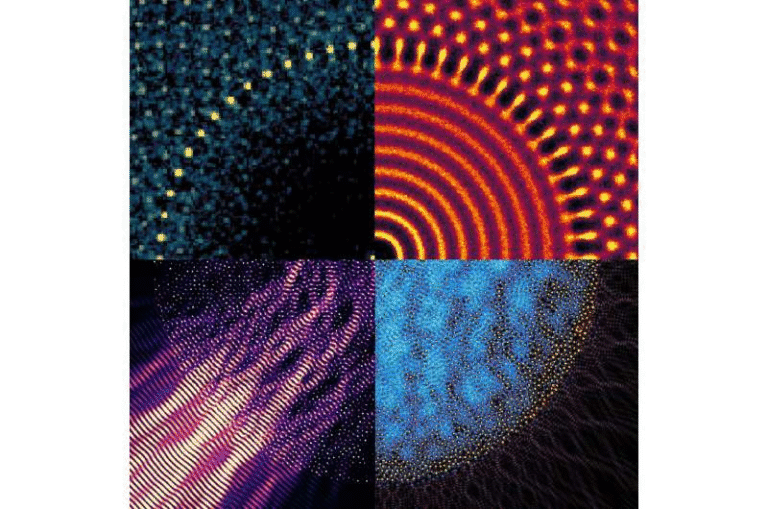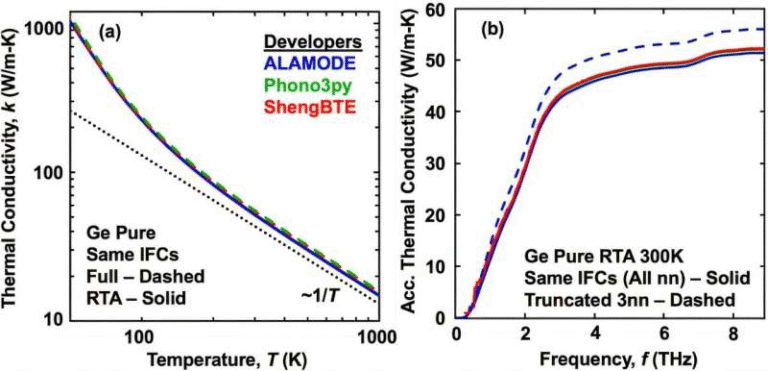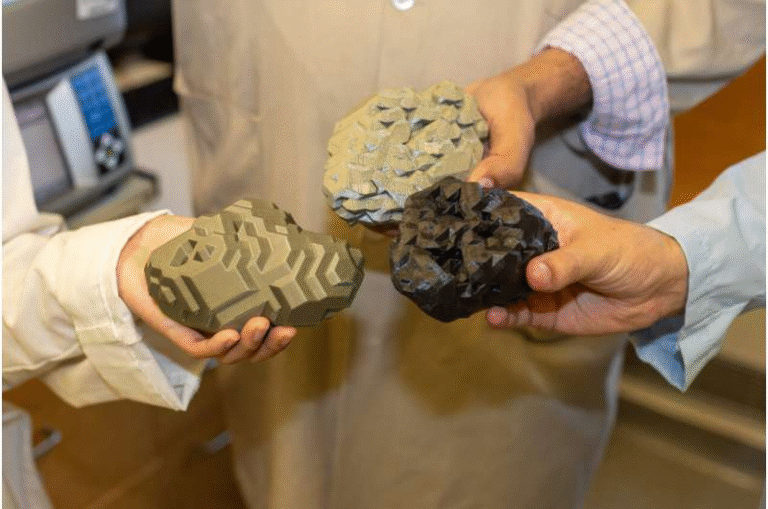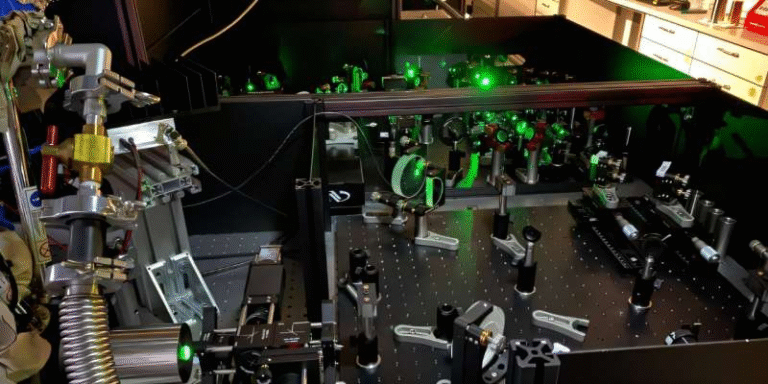Quantum Computers Are Learning From Black Holes

Imagine black holes—those mysterious cosmic monsters—teaching us about the future of computing. Sounds wild, right? Well, that’s exactly what’s happening. Researchers in Japan have just used two small quantum computers to mimic how black holes scramble information, and the results are fascinating.

What’s the Buzz About Scrambling?
In the quantum world, “information scrambling” is a process where data doesn’t disappear but spreads across an entire system until it’s almost impossible to piece back together. Think of it like writing a secret on a piece of paper, then shredding it into a million tiny pieces and scattering them across a room. The message is still there—it’s just ridiculously hard to put back together.

This scrambling happens in all sorts of quantum systems: exotic materials, strange metals, and most famously, black holes. Black holes are like the ultimate shredders, scattering information so thoroughly that recovering it is nearly impossible. By learning how scrambling works, scientists hope to answer some of the deepest questions in physics—including how information survives inside a black hole.
Why Quantum Computers Are Perfect for the Job
Traditional computers are brilliant at crunching numbers, but when it comes to simulating quantum processes, they quickly hit their limits. That’s where quantum computers shine. Because they use qubits (quantum bits), they can naturally model quantum behavior in ways classical machines can’t.
The RIKEN team, led by Kazuhiro Seki and Seiji Yunoki, tapped into this power using two 20-qubit quantum computers. Instead of owning the machines outright, they accessed cutting-edge trapped-ion quantum computers through the cloud. With them, they performed three simulations, including creating scrambled states and running quantum statistical calculations.
Small Steps With Big Potential
Right now, 20 qubits may not sound like much. But here’s the exciting part: the researchers showed that with just this setup, quantum computers are already approaching tasks that push the limits of classical supercomputers.
Yunoki explained that once you get to around 50 qubits, even the best classical computers may not keep up. And guess what? RIKEN already has a 20-qubit quantum computer installed and plans to upgrade to 50 qubits in the next couple of years. That’s when things will really get interesting.
Why This Matters
So why should you care about quantum computers simulating black holes? Because this isn’t just about physics curiosity—it’s about the future of computing. Understanding scrambling could unlock better quantum algorithms, improve information security, and even help us model materials or phenomena we can’t currently simulate.
It’s also a glimpse into how quantum computers are transitioning from being “just experimental” to tackling real-world problems. Right now, they’re not powerful enough to replace classical computers, but their unique ability to simulate quantum systems makes them an indispensable tool for researchers.
Looking Ahead
This breakthrough doesn’t mean we’ll be using quantum laptops tomorrow. But it does show we’re heading toward an era where quantum computers won’t just be lab toys—they’ll be essential scientific instruments.
The fact that two relatively small quantum machines can already replicate one of the universe’s most extreme behaviors is a strong sign of what’s coming. If we can understand how black holes scramble information using just 20 qubits today, imagine what 50 or 100 qubits could reveal about the mysteries of the cosmos.
Quantum computers are still finding their place in the tech world, but with each leap, they bring us closer to solving puzzles that were once thought untouchable. And sometimes, the best teachers turn out to be the darkest objects in the universe.
Source: Simulating Floquet scrambling circuits on trapped-ion quantum computers





